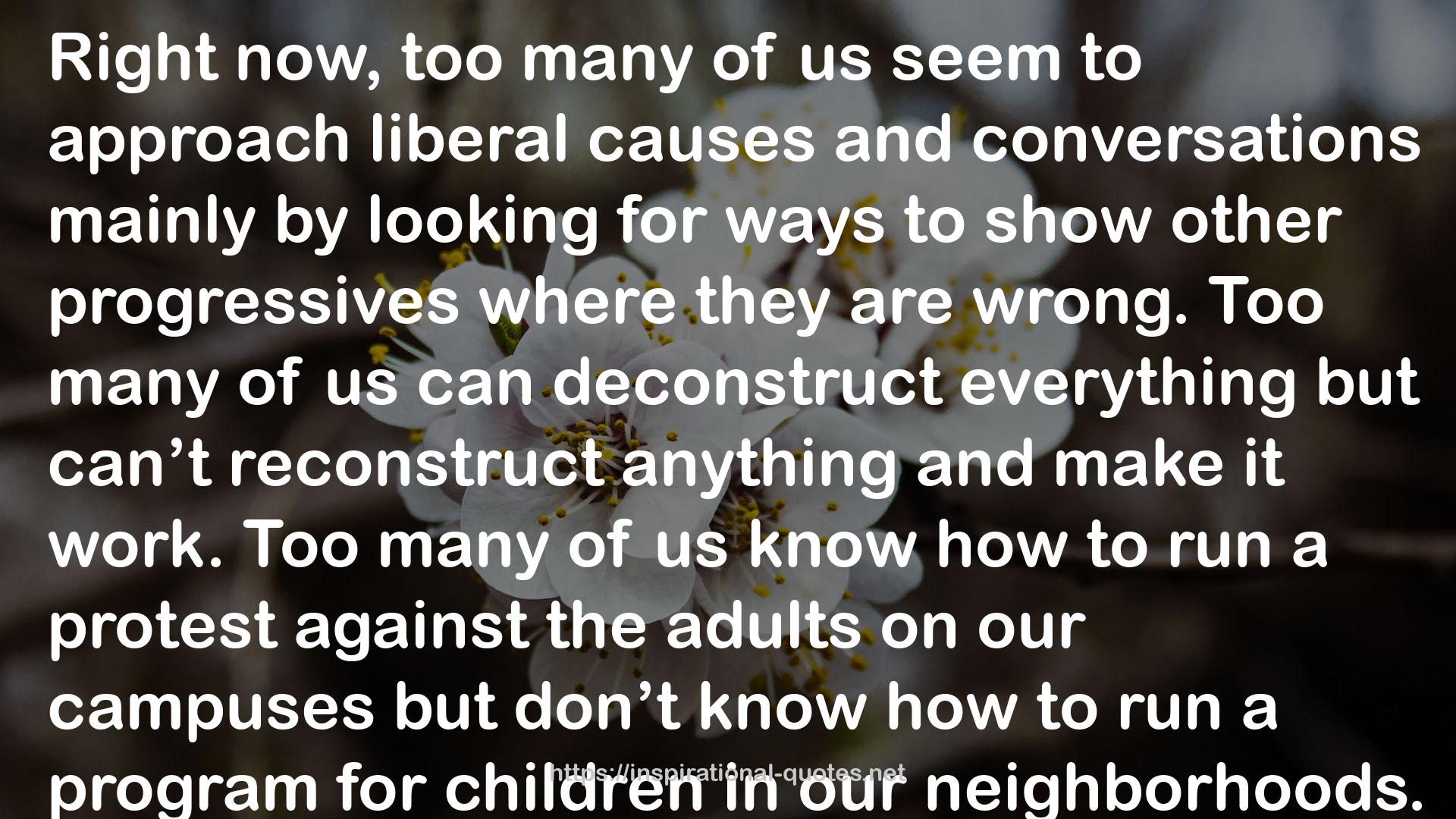10
" them out if they make dumb choices. Let them struggle; let them learn; let them take responsibility. They need to figure out the importance of working hard, saving money, being smart. For God’s sake, don’t be a damned fool and then go begging the government to save you.” This is not a stupid argument. I come at the issues differently, of course, as someone who supports a strong social safety net. But this more conservative view represents a considered and consistent position, worthy of respect. Lower-income conservatives are making the same kind of argument that rich liberals are making. They are willing to make monetary sacrifices to answer the call of their fundamental values. For liberals, those values are more about the common good and enlightened self-interest. For conservatives, those values are more about the importance of independence and personal responsibility. But both sides rightfully see their voting behavior as needing to reflect more than just a vulgar calculation about their immediate pocketbook needs. If one side deserves respect, then so does the other.*1 Of course, respecting our opponent’s argument doesn’t mean we have to just accept it and give in. It doesn’t mean we shouldn’t argue passionately about the best approach to taxes or spending—especially in a society as complex as ours, with the stakes as high as they are. In fact, we should disagree and debate. Debate is the lifeblood of democracy, after all. Disagreement is a good thing—even heated disagreement. Only in a dictatorship does everybody have to agree. In a democracy, nobody has to agree. That’s called freedom. It’s the whole point of America. But at the base of too many of our public discussions sits the same destructive assumption: I’m right. And you’re wrong. We proceed on both sides as if our side is grounded in “the Truth” and the other side is always insane and delusional. And some version of this flawed concept has become the default setting throughout American political discourse. It is one thing to say, “I disagree with you because we have different values and priorities.” It’s quite another to say, “I disagree with you because you are an uneducated idiot—a pawn—and a dupe.” The prevalence of the latter set of arguments is why the Democratic Party stinks of elitism. Here’s another liberal favorite: “How can we argue with conservatives? They don’t believe in facts anymore—only ‘alternative facts.’ At least, liberals believe in science. Right-wingers don’t!” I understand the source of liberal exasperation here. Even though any high school student can reproduce the greenhouse-gas effect in a laboratory beaker, "
― Van Jones , Beyond the Messy Truth: How We Came Apart, How We Come Together

